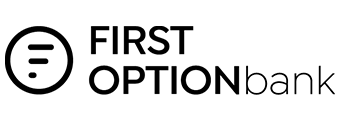Backed by payments platform EML Payments, and Ezidebit Australia, Flexibond is a specialist buy now, pay later (BNPL) platform catered towards renters who find paying their bond onerous.
With the slogan 'Rent now, pay later', customers receive a Flexibond digital Mastercard, and the platform pays the bond via that card, up to a maximum of $10,000.
Flexibond features instant approval and '0%' interest, however there is a 5% activation fee of the total bond amount and the platform is currently only available to NSW residents.
Need somewhere to store cash and earn interest? The table below features introductory and ongoing savings accounts with some of the highest interest rates on the market.

- Bonus variable rate for the first 4 months on balances up to $250k and high variable ongoing rates.
- No fees and no monthly requirements to earn interest.
- Easily open an account online in 3 minutes.
Flexibond founder and CEO Christopher Bailey said the platform fills a gap in the market.
"Renting can be expensive and stressful for many Australians, especially when they first secure a property and require funds for a bond," he said.
"[Flexibond] can empower customers to access funds on a digital prepaid card without any commercial merchant agreements needed."
According to SQM Research data, in the week leading up to 3 November, the average weekly rental price across all capital cities was $529 for houses, and $409 for units - down 2.9% and 6.0% on the year respectively.
Assuming bond is the customary four weeks' rent, plus two weeks' rent upfront, a house would require a renter pay $3,174 upfront for a house, and $2,454 for a unit.
These figures would see Flexibond charge a $158.70 or $122.70 activation fee respectively.
Flexibond's launch comes after an August YouGov survey of 1,016 Australian renters found 53% of respondents find it hard to save for a bond.
Nearly a quarter have also stayed longer than they wanted in a rental because they couldn't afford to lose their bond by breaking the lease early.
An 'unhealthy addition'
Tenants Union NSW CEO Leo Patterson Ross called the platform an "unhealthy addition to an already unfair rental system".
"This is the latest in a line of bond loans that seek to make a buck off the tough spot that tenants can find themselves in," he told Savings.com.au.
"The people who need this kind of product are people without savings, so forcing them to pay such a high rate of interest shows the dysfunction in our renting sector."
Mr Patterson Ross instead pointed eligible renters in NSW towards the 'RentStart' bond loan scheme, that is a "genuinely interest-free product".
The ACT also has a bond loan scheme, in which a single person can earn up to $98,000 a year and still access the loan.
For NSW, Mr Patterson Ross also suggested the government implement a new bond rollover service, where a tenant could provisionally use their existing bond on a new property.
Flexibond also says the platform can offer no interest and fast approval because "credit checks have been done by the real estate agent during the rental application process".
However, Mr Patterson Ross said this isn't necessarily true.
"Real estate agents don't carry out credit checks. Rent and bond is not a credit - it's payment for a service," he said.
"In this way, a person actually does run the risk of harming their credit score by engaging with this product in a way that their normal rent and bond arrangements wouldn't."
Julie Barrow, the coordinator of financial counselling development at Financial Counselling Australia, told Savings.com.au to effectively 'watch this space' when it comes to bond payment BNPL platforms.
"On review of the Flexibond website there is no mention of late payment fees, however they will not offer an extended payment plan if you cannot afford the fortnightly payments," she said.
"It will be interesting to see what happens to people who default on their repayments. What we have traditionally seen is ongoing fees charged to such accounts and debt collection activity."
Ms Barrow recommended five ways to tackle bond payments:
- If you have a few months to plan, try to save any additional money you have towards the bond.
- If you are receiving Centrelink payments you may be eligible for an advance payment which you can pay back in smaller amounts over a longer period of time (if you receive a previous bond back, pay off the Centrelink advance or keep the money as your new emergency fund).
- Contact your local State government bond programs and see what is available and whether you are eligible.
- Speak to a local housing services to see what options there are locally.
- If you have other unmanageable debts that are impacting your ability to pay for basic needs and save for a bond, call the National Debt Helpline Ph: 1800 007 007 for advice from a qualified financial counsellor.






.jpg)

 Harry O'Sullivan
Harry O'Sullivan
 Brooke Cooper
Brooke Cooper